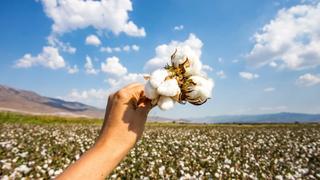As many as 27 pesticides are under consideration for ban, and the Government has appointed an expert committee to look into this issue, Narendra Singh Tomar, Union Minister for Agriculture and Farmers’ Welfare, told the Rajya Sabha on Friday.
The pesticides are: Acephate, Atrazine, Benfuracarb, Butachlor, Captan, Carbendazim, Carbofuran, Chlorpyriphos, 2,4-D, Deltamethrin, Dicofol, Dimethoate, Dinocap, Diuron, Malathion, Mancozeb, Methomyl, Monocrotophos, Oxyfluorfen, Pendimethalin, Quinalphos, Sulfosulfuron, Thiodicarb, Thiophanat emethyl, Thiram, Zineb and Ziram.
He said the Anupam Varma Committee had reviewed 66 pesticides. Accordingly, following due procedure, 12 pesticides were completely banned and six pesticides were phased out.
Also read: Pest attack threatens maize crop
DDT, the use of which for agriculture purpose has been completely banned from May 1989, was allowed to continue to be used for public health programme. “In addition, 27 aforementioned pesticides have further been identified to be banned,” he said, adding the pesticide Fenitrothion is already banned for use in agriculture. The pesticide Endosulfan has not been reviewed, being under consideration of the Supreme Court. As many as 18 pesticides were recommended to be continued.
So far, the government has banned or phased out 46 pesticides and four pesticide formulations for import, manufacture or sale in the country. In addition, five banned pesticides are allowed to be manufactured for export only, eight pesticide registrations have been withdrawn, and nine pesticides have been placed under restricted use, he said.
Farmers using e-NAM
In a separate reply, the Minister said 8.78 lakh farmers have used National Agriculture Market (e-NAM) platform to sell their agricultural produces till June-end of 2021-22. A total of 37.73 lakh farmers used it during the financial year 2020-21.
The major crops traded on e-NAM platform by farmers are: paddy, wheat, cotton, chilli, soyabeans, maize, potato, chana, tomato, groundnut, mustard seeds, gaur seeds, onion, turmeric, arhar (tur / red gram), bajra, moong whole (green gram), castor seed, lentil (masur), sweet lemon, etc.
Also read: Indian rice export rates grind to 16-month lows as supplies grow
He said e-NAM is a virtual platform integrating physical wholesale mandis/ markets of different states and Union Territories (UTs) to facilitate online trading of agriculture and horticulture commodities through transparent price discovery method to enable farmers to realize better remunerative prices for their produce.
So far, 1,000 Agricultural Produce Market Committees (APMCs) have been integrated in 18 states and three UTs. The e-NAM platform has no provision to capture prices of non e-NAM mandis. The price of agricultural produce is dependent mainly on the supply, demand, climatic conditions, location of market from production area and quality of the produce etc., he added.








Comments
Comments have to be in English, and in full sentences. They cannot be abusive or personal. Please abide by our community guidelines for posting your comments.
We have migrated to a new commenting platform. If you are already a registered user of TheHindu Businessline and logged in, you may continue to engage with our articles. If you do not have an account please register and login to post comments. Users can access their older comments by logging into their accounts on Vuukle.